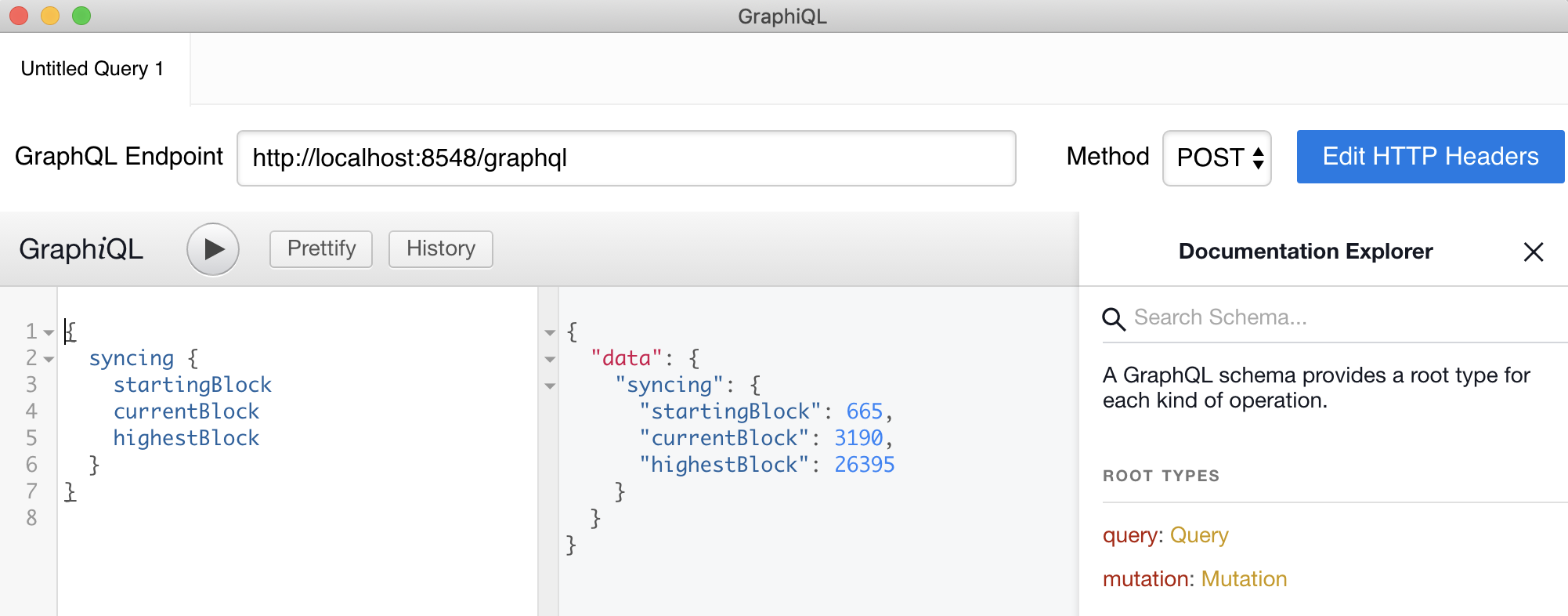Use GraphQL over HTTP
GraphQL can reduce the overhead needed for common queries. For example, instead of querying each receipt in a block, GraphQL can get the same result with a single query for the entire block.
The Besu GraphQL schema describes the GraphQL implementation for Ethereum. Enable the GraphQL service using command line options.
GraphQL is not supported over WebSocket.
Access the GraphQL endpoint at http://<HOST>:<PORT>/graphql. Configure <HOST> and <PORT> using graphql-http-host and graphql-http-port. The default endpoint is http://127.0.0.1:8547/graphql.
GraphQL requests with cURL
Hyperledger Besu JSON-RPC API methods with an equivalent GraphQL query include a GraphQL request and result in the method example.
The following syncing request returns data about the synchronization status.
curl -X POST -H "Content-Type: application/json" --data '{ "query": "{syncing{startingBlock currentBlock highestBlock}}"}' http://localhost:8547/graphql
GraphQL requests with GraphiQL app
The third-party tool, GraphiQL, provides a tabbed interface for editing and testing GraphQL queries and mutations. GraphiQL also provides access to the Besu GraphQL schema from within the app.

Pending
transactionCount and transactions supports the Pending query.
Besu does not execute pending transactions so results from account, call, and estimateGas for Pending do not reflect pending transactions.
- Pending transaction count
- Result
curl -X POST -H "Content-Type: application/json" --data '{ "query": "{pending {transactionCount}}"}' http://localhost:8547/graphql
{
"data": {
"pending": {
"transactionCount": 2
}
}
}
- Pending transactions
- Result
curl -X POST -H "Content-Type: application/json" --data '{ "query": "{pending {transactions{hash}}}"}' http://localhost:8547/graphql
{
"data": {
"pending": {
"transactions": [
{
"hash": "0xbb3ab8e2113a4afdde9753782cb0680408c0d5b982572dda117a4c72fafbf3fa"
},
{
"hash": "0xf6bd6b1bccf765024bd482a71c6855428e2903895982090ab5dbb0feda717af6"
}
]
}
}
}